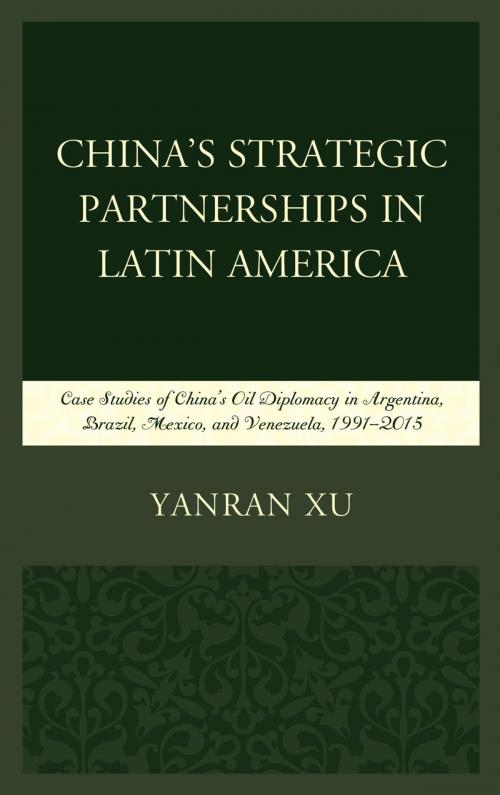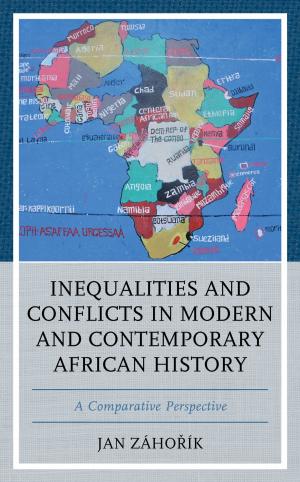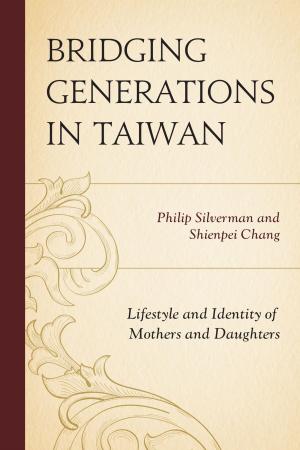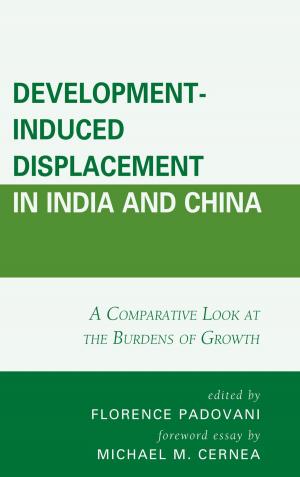China's Strategic Partnerships in Latin America
Case Studies of China's Oil Diplomacy in Argentina, Brazil, Mexico, and Venezuela, 1991–2015
Nonfiction, History, Asian, China, Social & Cultural Studies, Political Science, International| Author: | Yanran Xu | ISBN: | 9781498544702 |
| Publisher: | Lexington Books | Publication: | December 14, 2016 |
| Imprint: | Lexington Books | Language: | English |
| Author: | Yanran Xu |
| ISBN: | 9781498544702 |
| Publisher: | Lexington Books |
| Publication: | December 14, 2016 |
| Imprint: | Lexington Books |
| Language: | English |
This study examines how China has developed a diplomatic mechanism to expand its international influence through the establishment of strategic partnerships. These strategic partnerships have sparked a debate among analysts. On the one hand, some optimistic studies applaud the win-win objective of China’s foreign policy and portray China as a successful model for developing countries. On the other hand, more skeptical studies depict China as a rising imperial power that represents a competitive threat to Latin America. This book focuses on China’s strategic partnerships with Argentina, Brazil, Mexico, and Venezuela within the oil sector. It stresses how Chinese strategic partnerships with each of these four countries have diverged across cases over time (1991–2015). The study finds that the strategic partnerships are asymmetrical in which China benefits more than four Latin American countries in a variety of aspects. I suggest Latin American countries to push for greater diversification of export agenda toward China, to develop new productive partnerships beyond traditional sectors and to increase the competitiveness of firms. Meanwhile, China’s diplomatic actions toward Latin America are more than likely to result in forms of change, particularly across my four country cases, and where strategic partnerships are concerned.
This study examines how China has developed a diplomatic mechanism to expand its international influence through the establishment of strategic partnerships. These strategic partnerships have sparked a debate among analysts. On the one hand, some optimistic studies applaud the win-win objective of China’s foreign policy and portray China as a successful model for developing countries. On the other hand, more skeptical studies depict China as a rising imperial power that represents a competitive threat to Latin America. This book focuses on China’s strategic partnerships with Argentina, Brazil, Mexico, and Venezuela within the oil sector. It stresses how Chinese strategic partnerships with each of these four countries have diverged across cases over time (1991–2015). The study finds that the strategic partnerships are asymmetrical in which China benefits more than four Latin American countries in a variety of aspects. I suggest Latin American countries to push for greater diversification of export agenda toward China, to develop new productive partnerships beyond traditional sectors and to increase the competitiveness of firms. Meanwhile, China’s diplomatic actions toward Latin America are more than likely to result in forms of change, particularly across my four country cases, and where strategic partnerships are concerned.















